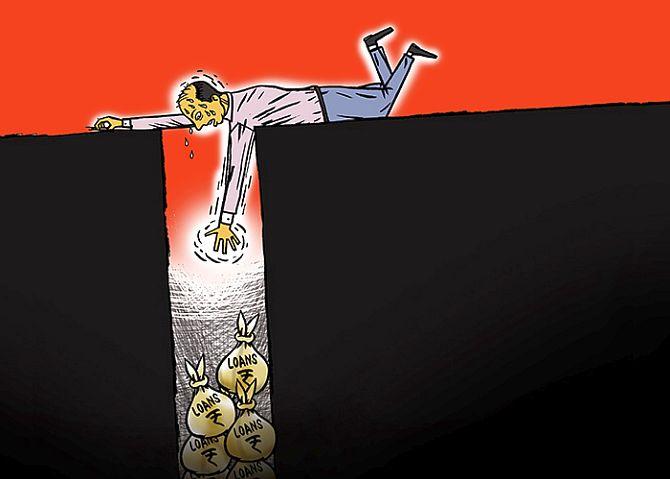The incremental stress is mainly from sectors including power, infrastructure, constructions, hospitality, iron and steel, telecom, and realty.

Stress emerging from the severe economic shock caused by steps to contain the pandemic may drive total slippages to Rs 5.5 trillion in FY21.
The corporate side may see slippages of Rs 3.4 trillion, and non-corporate side - retail, farming and MSMEs - may account for Rs 2.1 trillion, according to India Ratings.
Banks faced elevated provision pressure (amount set aside for stressed loans) resulting from the corporate stress cycle, from FY16-FY20. For this, they had made substantial provisions and were moving towards a moderated credit cost cycle.
However, the COVID-related measures are likely to result in another cycle of stress.
Additionally, the pressure on non-corporate segments, which were already visible before the outbreak, is likely to intensify, said the rating agency.
With a significant drop in economic activity, most sectors in India are expected to experience varying degrees of revenue contraction in FY21, on account of demand and supply disruption.
This presents a fresh challenge to banks, which, over the last four years, have been reeling from corporate stress.
Referring to an analysis of 30,000 firms, the rating firm said the total stressed corporate pool may increase from 3.8 per cent of the total bank credit in December 2019, to 6.6 per cent in the post-COVID phase.
The incremental stress is mainly from sectors including power, infrastructure, constructions, hospitality, iron and steel, telecom, and realty.
Referring to non-corporates, it said stress and slippages would aggravate in retail, agriculture, as well as in the micro, small and medium enterprises (MSME) segments.
About 40 per cent of incremental slippages could come from non-corporates.
Steps announced by the government as part of the economic package are mid-to-long-term ones.
If these are implemented timely, they could aid materially to reduce the expected stress in MSMEs.
The outbreak will significantly aggravate stress in the retail portfolio, specifically the unsecured one.
Delinquencies in this segment have increased by 50 per cent.
The impact could be higher, especially for private sector banks, whose unsecured retail portfolio accounts for 16.6 per cent of the total bank credit against 6.3 per cent for public sector banks (PSBs).
Credit costs - the amount set aside for stressed loan pool - could thus increase up to Rs 2.7 trillion in FY21 for the system. Around 70 per cent of which could be attributed to PSBs.
If the accelerated provisioning regime is reinstated, there could be additional credit costs of 0.3-0.6 per cent.
This could require the government to infuse more capital into PSBs.
Capital requirement under the benign provision regime for PSBs would range from Rs 30,000-55,000 crore.
This factors in the volatile markets for additional tier-1 bonds, and hence the limited traction for them.
If the accelerated provisioning regime is reinstated, the capital requirement could further increase up to Rs 40,000 crore to maintain Tier-1 capital of 10 per cent.
This is 50 bps higher than the regulatory requirement that comes into action after September 2020, the rating agency added.











